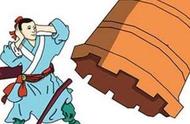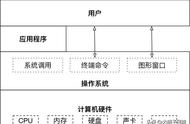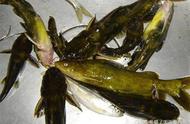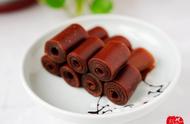I一般过去时态
一般过去时态表示在过去的某个时间发生的动作或存在的状态,常和表示过去的时间状语连用。例如yesterday, last weekend ,last Saturday ,等连用。
基本句型:主语 动词的过去式 其他。
例句--What did you do last weekend?你上周做什么了? --I played football last weekend.我踢足球了。
★ 规则动词过去式的构成
⒈一般在动词原形末尾加-ed。例如:play-played
⒉词尾是e的动词直接加-d。例如:dance-danced
⒊末尾只有一个辅音字母的重读闭音节词,先双写这个辅音字母,再加-ed。
例如stop(停止)--stopped
⒋结尾是“辅音字母 y”的动词,变“y”为“i”,再加-ed,例如:study--studied
★ 一些不规则变化的动词过去式 am/is-was are-were go-went swim-swam fly-flew do-did have-had say-said see-saw take-took come-came tell-told get-got draw-drew hurt-hurt read-read will-would eat-ate take-took make-made drink-drank sweep-swept cut—cut run-ran find-found buy-bought win-won give-gave sing-sang hear--heard
一、写出下列动词的第三人称单数形式、过去式。
go _______ _______ eat _______ _______ get _______ _______ take _______ _______ dance _______ _______ write _______ _______ run _______ _______ find _______ _______ eat _______ _______ play _______ _______ study _______ _______ sing_______ _______ clean_______ _______ draw ________ _______ read_______ ________ sweep______ _______ pick ________ _______ win _______ ________
二、用所给动词的适当形式填空。
1. I _______________ (watch) a cartoon on Saturday. 2. Her father ___________________ (read) a newspaper last night. 3. We _________ to zoo yesterday, we ____________ to the park. (go) 4. __________ you _______ (visit) your relatives last Spring Festival? 5. ________ he _________ (fly) a kite on Sunday? Yes, he ______. 6. I ____________ (sweep) the floor yesterday. 7. What _________(do) she _________ (find) in the garden last morning? 8. It _________ (be) Ben's birthday last Friday 9. We all ________ (have) a good time last night. 10. He _________ (jump) high on last Sports Day. 11. Helen _________ (drink) a bottle of water this morning. 12. She likes _________ newspapers, but she _________ a book yesterday. (read) 13. He _____________ football now, but they _______ basketball just now. (play) 14. Jim's mother _________ (plant) trees just now. 15. Did they ________ (sweep) the floor on Sunday? No, they didn’t. 16. Jenny________ (put) the book on his head a moment ago. 17. Don't _______________ the house. Mum ____________ it yesterday. (clean) 18. What _________ you ______ just now? I _______ some housework. (do) 19. They _______________ (make) a kite a week ago. 20. I want to ______ apples. But my dad _______ all of them last month. (pick)
Ⅱ形容词比较级、最高级的规则变化
1.大多数形容词副词之后直接加-er,-est ,
如:short—shorter—shortest slow—slower—slowest
2.以e 结尾的形容词和副词加-r,-st ,
如:nice—nicer—nicest;late—later—latest; large—larger—largest
3.以辅音字母加y结尾的形容词副词变y为i再加--er ,--est;
如:early—earlier—earliest heavy— heavier—heaviest;
busy—busier—busiest
4.以重读闭音节结尾末尾只有一个辅音字母的,双写末尾的辅音字母再加-er,-est,
如:big—bigger—biggest; fat—fatter—fattest; hot—hotter—hottest; thin—thinner—thinnest;
Ⅲ形容词比较级和最高级的不规则变化
1.不规则的形容词副词的比较级最高级:
如:many/much—more—most good/well—better—best bad/badly—worse—worst little—less—least far—farther—farthest
2.多音节的形容词副词的比较级最高级加-more,-most,
如;beautiful—more beautiful—most beautiful interesting—more interesting—most interesting popular—more popular—most popular
Ⅳ形容词的用法
(一)形容词原级(原形)的用法
1、说明人或事物自身的特征、性质和状态时用形容词原级。
如:The flowers in the garden are beautiful . 花园里的花漂亮。
2、有表示绝对概念的副词very, so, too, enough, quite等修饰时用形容词原级。
如:The boy is too young. 这个男孩太小。
3、表示A与B在某一方面程度相同或不同时用形容词原级。
(1)肯定句中的结构:“A… as 形容词原级 as B”,
如:English is as interesting as Chinese. 英语和语文一样有趣。
Ben is as tall as Jim. 小明和吉姆一样高。
(2)否定句中的结构:“A… as /so 形容词原级 as B”,
如:This book isn't as new as that one. 这本书不如那本书新。
I am not so careful as Lucy. 我没有露西仔细。
(3)表示“A是B的……倍”时,用“A… 倍数 as 形容词原级 as B”结构。
(一倍:once;二倍:twice; 三倍以上:数字 times) 如:Our school is three times as big as theirs. 我们学校是他们学校的三倍大。
The table is twice as long as that one. 这张桌子是那张桌子的两倍长。
(二)形容词比较级的用法 1、表示两者进行比较时用形容词比较级,其结构为“A… 比较级 than B”。
如:Li Lei's room is bigger than mine. 李莉的房间比我的房间大。
2、有表示程度的副词a little, a bit, a lot, much, even, still, far, rather, any 等修饰时, 用形容词比较级。
如:It is much colder today than before. 今天比以前冷多了。
3、表示两者之间进行选择“哪一个更……”时, 用句型“Which/Who is 形容词比较级,A or B?”表示。
如:Who is taller, Li Ming or Wang Tao? 李明和王涛谁更高? Which sweater is more beautiful ,the yellow one or the pink one? 哪件毛衣更漂亮,黄色的那件还是粉色的那件? 4、表示“比……”时,用“倍数 比较级 than 如:I am three years older than you.我比你大三岁。
5、表示“两者之间最……一个(of the two )”时,常用“the 比较级”结构。
如:Mary is the taller of the twins. 玛丽是双胞胎中较高的那个。
6、表示“越来越……”,用比较级重叠结构,即“比较级 and 比较级”, 多音节词和部分双音节词时用“more and more 形容词原级”。
如:It's getting warmer and warmer in spring. 春天天气变得越来越暖和。
Our hometown is becoming more and more beautiful. 我们的家乡变得越来越漂亮。
7、表示“越……就越……”时,用“the 比较级,the 比较级“结构
如:The warmer the weather is, the better I feel. 天气越暖和我感觉越舒服。
针对性训练
( )1. I found he looked _________ than last time when I went to see him.
A. better B. well C. good D. Bad
( )2. She's already ___________ her brother.
A. so tall than B. as tall than C. so tall as D. as tall as
( )3. It is said that it is _____________today than yesterday. Shall we go swimming this afternoon?
A. the hottest B. hot C. hottest D. hotter
( )4. Shanghai is bigger than ___ in Japan.
A. any other city B. all the other cities C. any city D. the other cities
( )5. ___ you speak English, ___ you can speak.
A. The more; better B. More; the better C. More; better D. The more; the better
( )6. They have just cleaned the windows, so the room looks ___ .
A. more brighter B. more bright C. less brighter D. much brighter
( )7. Each of us was too tired to go any ___ .
A. far B. farer C. much farther D. Farther
( )8. ---Dad, could you buy me a bike like this? --- Hmm, we can buy ___ one than this, but as good as this.
A. better B. the best C. a cheaper D. a cheap
( )9. Now it is ___ here, but it is even ___ in Jinan.
A. hotter; hottest B. hot; hottest C. hotter; hot D. hot; hotter
( )10. ---I can't afford the white dress. Can you show me something cheaper? ---What about the orange one? The price is a little ___ .
A. cheaper B. lower C. higher D. more expensive
1.A 2.D 3.D 4.C 5.D 6.D 7.D 8.C 9.D 10.B
,












